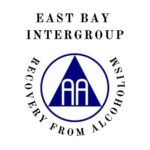by Dan M.
Dr. Silkworth was the writer of the letters included in the chapter, “The Doctor’s Opinion,” in the front of the Big Book. He was instrumental in viewing alcoholism as an illness, rather than a moral failing, and became one of AA’s greatest supporters. Silkworth treated Bill W. for alcoholism at Towns Hospital, over four visits, from 1933-34, the last of which occurred after Bill had met with Ebby. Bill W. described him as “the man we now realize was very much a founder of AA.”
Continuing our study of early figures who played a role in the founding of AA, this month we look at the life of Dr. William Silkworth. Born in Brooklyn in 1873, he attended Princeton, specializing in neuropsychiatry. After graduating, he studied at Bellevue Hospital Medical College, one of the only hospitals in the U.S. with a department for the treatment of alcoholics, where he gained his medical degree as psychiatrist in 1899.
During World War I, Dr. Silkworth served for two years (1917-1919) as a member of the psychiatric staff at the US Army Hospital in New York. He joined Towns Hospital in New York as director in 1932, specializing in the treatment of alcoholism and drug addiction, where he’d meet Bill W. a few years later. He remained at Towns until his death from a heart attack in 1951, at age 77.
Bill W. checked into Towns Hospital for the first time in 1933. Here he met Silkworth, who explained to him his theory that alcoholism is an illness rather than a moral failure or failure of willpower. Dr Silkworth was not the first to treat alcoholism as an illness, but it was not the prevailing medical theory in the thirties. He explained to Bill that he had an allergy of the body as well a mental obsession and that abstinence was the only sure way to remove the cravings.
Bill stayed sober for only a month after his first visit. He checked in three more times over the course of ’33 and ’34. By the fourth visit he had had his encounter with his old friend Ebby T. who introduced him to the principles of the Oxford Group. On his fourth stay in Towns, Bill had his spiritual “white light” experience. As Bill recounted in the Big Book, Dr. Silkworth told him, “Something has happened to you I don’t understand. But you had better hang on to it.”
As Bill and Dr. Bob spread the ideas of AA, and alcoholics created new meetings, Dr. Silkworth remained a great supporter. He led Bill to alcoholics to work with in his hospital, and he even convinced the hospital owner, Charles B. Towns to loan $2,500 for the preparation of the Big Book. In one of his papers on the treatment of alcoholism, “Reclamation of the Alcoholic,” he describes five cases of alcoholics he had treated at Towns. Case number five is the story of Bill W.
Dr Silkworth wrote two letters in support of the AA program which are included in the Big Book as “The Doctor’s Opinion,” lending medical credibility to the program. He is estimated to have treated 40,000 alcoholics in his career. He died of a heart attack while working at Towns in 1951, at age 77. Bill W. described him as “the man we now realize was very much a founder of AA.”
Dan M.’s home group is Fremont Men’s Stag at Irvington Presbyterian Church on Monday evenings at 7. Hybrid: 187 927 449, PC: 774746



